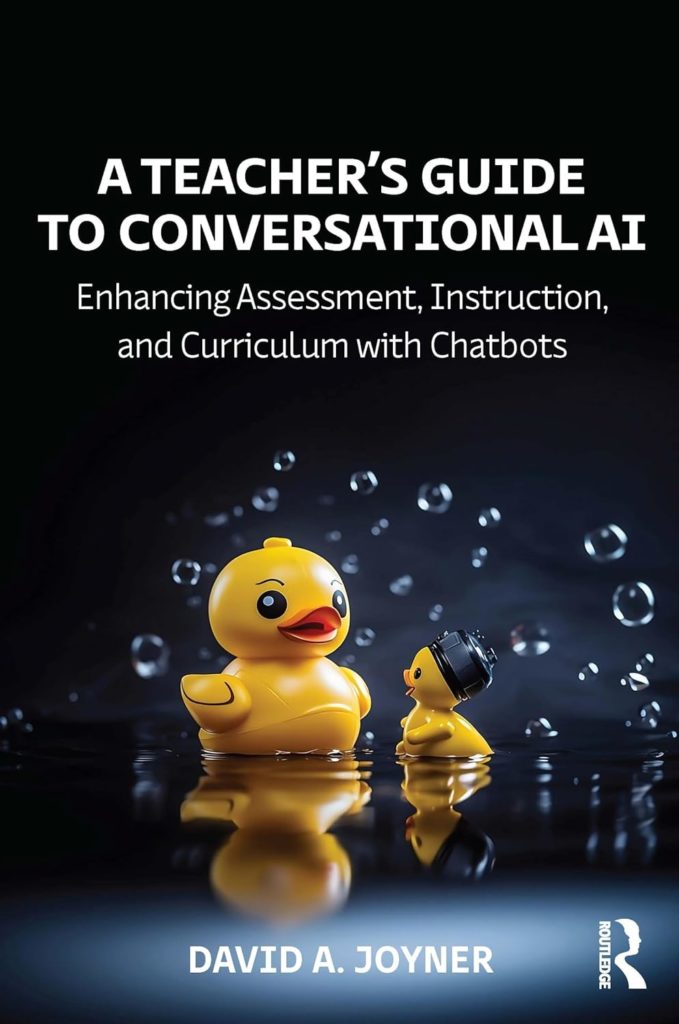
Using Chatbots to improve Education
A Teacher’s Guide to Conversational AI explores the practical role that language-based artificial intelligence tools play in classroom teaching, learning experiences, and student assessment. Today’s educators are well aware that conversational and generative AI—chatbots, intelligent tutoring systems, large language models, and more—represent a complex new factor in teaching and learning. This introductory primer offers comprehensive, novice-friendly guidance into the challenges and opportunities of incorporating AI into K-12 schools and college classes in ways that are appropriate, nourishing to students, and outcomes-driven.Opening with an informative overview of the foundational properties, key terminology, and ethical considerations of these tools, the book offers a coherent and realistic vision of classrooms that are enhanced, rather than stymied, by AI systems. This includes strategies for:
-
- designing assessments that are conducive to students’ beneficial use of AI while mitigating overreliance or dishonesty
- using AI to generate lesson examples for student critique or custom content that reinforces course principles
- leveraging chatbots as a co-instructor or a tutor, a guide during student-driven learning, a virtual debate or brainstorming partner, and a design project
- creating course content, lesson plans and activities, expanded language and accessibility options, and beyond
Through the depth of understanding and applied approach provided in these chapters, teachers and leaders in training and in service, alongside private tutors, college instructors, and other educators, will be better prepared to future-proof their efforts to serve new generations of learners.
About the author.
![David_Joyner_Headshot[4]-Crop](https://www.teachersguidetocai.com/wp-content/uploads/2023/10/David_Joyner_Headshot4-Crop.png)
David Joyner is executive director of Online Education & OMSCS in Georgia Tech’s College of Computing and the inaugural holder of the Zvi Galil PEACE (Pervasive Equitable Access to Computing Education) Chair. He has authored over 50 papers and three books on online learning and CS education. He teaches five online classes reaching over 3,000 students per semester, and he has received several awards for his work in teaching online, including the 2022 College of Computing Outstanding Faculty Leadership Award, the 2019 USG Regents’ Teaching Excellence Award for Online Teaching, and the 2018 Georgia Tech Center for Teaching & Learning Curriculum Innovation Award. He has served as the chair of the ACM Learning @ Scale conference steering committee, as well as the conference’s General Chair in 2019, 2020, and 2024.
